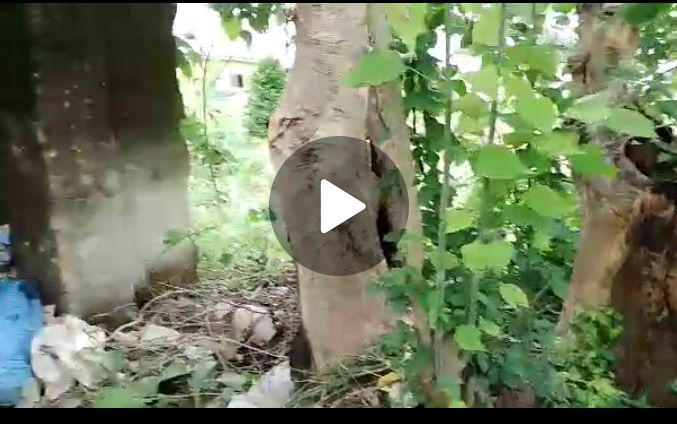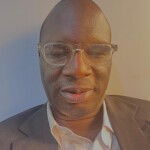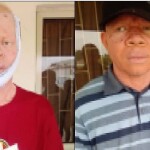Special-need schools across regions in Nigeria are battling escalating robberies and violence, leaving pupils traumatized and vulnerable despite the Safe School Initiative.
By Gbenga Ogundare
Six times in about eight years, hoodlums have robbed pupils of the Edo State School for the Blind, Uwa. The school management could only make the kids imagine what the robberies cost them. But their helplessness gnawed at them as they braced up for each burglary.
At the Special Education Centre for the Blind in Afara-Ukwu, Abia State, the violence moved a notch higher two years ago. The blind kids there panicked into disorientation the noon their school area came under fire. A source told ER the aged man securing them comes at night—to sleep. Principal Bernadette can’t even imagine a special-need school like hers running behind a run-down perimeter fence. The trauma of the past pockets of violence around the premises hasn’t receded yet in the children’s memory.
The Oji River Special Education Centre in Enugu State, is no stranger to the ricocheting of AK-47 shells, either. An alumnus of the school’s blind section narrated his own chiller: hails of spent shells falling on them whenever armed robbers and policemen clashed in the jungle hedging their school. While he kept his head down during the crossfires, Godspower Asuro, the school senior prefect then, still had the female hostel to worry about. The gender-based violence there was nothing compared to their Kaduna counterparts, though. A predator had staked out the female school for nine years before he got his cover blown in February this year.
For the Kaduna, the Oji River, and the Uwa children, most of their experiences fell in an era many could described as dark for PWDs. But the passage of the Prohibition of Discrimination Against PWDs Act in 2018 hasn’t changed much of the situation.
By March, days to their exams, robbers came again, and picked the Edo school clean, Lucky Imafidon, Chairman of the Nigeria Association of the Blind, Edo State Chapter, told ER.
Five braille machines, each costing N2.2m, two typing machines, and three white canes disappeared without any opposition, a teacher in the school told ER on condition of anonymity.
When it began years ago, the robbery targeted not much of learning equipment. Just tables, chairs, window frames, and other fixtures.
“We were suspecting some mushroom private schools around then,” the source said.
Then the hoodlums started nabbing learning tools when wooden things lost their fancy. Assistive devices suddenly became fast moving goods in the underworld.
At the school in Afara-Ukwu, an inverter system for alternative power supply and a split-unit AC disappeared the last time the robbers came. They vandalized other things, too. At the Oji River, the report Asuro said he got was no better than when he was there about two decades ago. Then, when the vandals were not peeling off the zinc roofing in the blind school section, some men trying to unhinge the door to the female hostel were driving the girls into a frenzy. “Our guard was an old man who came at night to sleep,” he told ER. The boys would have to blunder out of their hostel, and mobilized to defend the girls.
No safe sanctuary
Attacks on schools aren’t new. No fewer than 29 students of Yobe Boys School died in their sleep when Boko Haram set their dorm on fire in 2014. The mother of all school attacks dates back to a later month that year: the terrorists carted no fewer than 270 Chibok Secondary School girls into the Sambisa forest. The angst it generated boiled over into celebrity cause. A global campaign followed, churning out a cache of policy drafts, including the Safe School Initiative, in Nigeria. UN Special Envoy Gordon Brown and the coalition of Nigeria’s business leaders launched it with a multimillion-dollar fund. The UN later administered it for the initiative’s pilot project in some 18 states.
But for the blind school children in Edo (robbed two years later) and Abia who have been falling victim to school violence—nobody cares so far. Nor for other school children with disabilities elsewhere. The Imo School for the blind had to merge with the Abia’s when authorities couldn’t secure the kids again.
Even the policy outcome of the Chibok incident hasn’t rubbed off on the special-needs schools.
“They didn’t include us in any Safe School Initiative here. We haven’t heard anything like that,” authorities at the Edo State School for the Blind told ER. The special adviser to the Abia governor on disabilities wouldn’t have forgotten the Afara school is under the SSI. David Anyaele only told ER in an interview how a lack of awareness prevent some stakeholders from prioritizing PWD’s safety during security crises.
A 2021 report UNICEF published in 2022 stated 25 schools came under attack in Nigeria between 2020 and 2021. The year 2021 got worse No fewer than 115 schools took the hit. But the world body took no sample of school violence across the south in its Impact of School Attacks. What the National Safe School Response Coordination Centre (NSSRCC) knows about violence against the 1,777 special-needs school in Nigeria is even in doubt. So disaggregating the data for attacks on the Edo, Abia and the Enugu schools for the blind remained a non-issue.

It’s always easy to gloss over most things disability in Nigeria. And the best policymakers do after realizing their oversight is tack on the disability angle. Certain policies or laws, though, sometimes manage to clearly establish disability considerations—or rights. Like the Act’s Section 25 does: In all situations of risk, violence, emergencies and the occurrences of natural disasters, the government shall take all necessary steps to ensure the safety and protection of persons with disabilities, taking cognizance of their peculiar vulnerability. Implementing this in real-life situations has always being a problem. Criminals, including armed robbers and terrorists, know about this neglect before they take advantage of it to attack the schools.
The authorities must have known this, too, in their threat analyses. It just appears they don’t bother about taking any action to deter the criminals, and secure the schoolchildren with disabilities. Otherwise the SSI could have re-sharpened its 2014 policy thrust when the Disability Act came into effect four years after.
For now, the SSI never considers the peculiarity of the over 1,777 special-need schools in Nigeria. Which is why the special schools in Edo and Abia told ER they had no idea what the initiative is.
The commander of the NSSRC generally worries about school managers like those in the troubled special schools. Their ignorance and apathy shows on the register of schools that have enlisted so far. The centre didn’t respond to ER questions (through e-mail) on the extent of special-needs schools captured in the initiative. But a report following the enquiry stated 4000 schools have registered so far. No particular data for special-needs schools, still.
Out of sight
Hammed Abodunrin wouldn’t blame the heads of those special schools outright. Their state governments have failed in creating awareness, he noted in an interview with the Punch.
That the responsibility begins with the government even means more problems. One of them is bureaucracy. Some of those ER wanted to interview for this report in the special-needs school baulked. The consequences of revealing the depth of the problem, without authorisation from their higher-ups, prevented them from talking.
But the pains are there all the same.
“Some cried; some prayed, and some released curses out of anger,” teachers at the Edo school said. The Uwa pupils’ reactions to the pillage of their learning resources would not surprise anyone. The SUBEB supplied them with the earlier sets of braille machines the robbers took away; some NGOs and philanthropists bought some, too. “Now the suppliers are all tired.”
The last incident happened close to their exam period. The school could not braille the questions papers and other test materials for its 30 pupils. “We had to make them use styluses and slates, using their fingers to write. Yet, some of them have problem writing,” a teacher lamented. And after the exams, all of them went on vacation without their holiday assignments.
The Afara school computer resources laboratory ran on the inverter before the robbers took it away. The lab is no longer operating now, Bernadette told ER. The loss at the Kaduna school was of the mind. “About 15 blind girls the predator, a DSS operative, raped nightly in their hostel got pregnant,” one affected student told ER. “Others now go to sleep wrapped in layers of thick fabrics.” It’s a security measure, anyway.
At some point, the Uwa and the Imo school managements also found a way out: moving the kids to places they consider safe. The Edo school operated at Eriri before. The last attack pushed them to Uwa. The blind school children from Imo have also moved to Afara in Abia for safety. Their host already shaken doesn’t have much protection to offer. Not with an old security guard and a breached perimeter fence. Anyaele hinted on a development, though. “Gov Otti has directed the commissioner for lands and housing to commence a perimeter fencing of the school,” he said. It remains a directive for now. Both schools may soon have to flee elsewhere if nothing changes.
But the Oji River blind school children had nowhere to run then (even now); they resorted to self-help. “What we did then anytime they came to the female hostel was to go wake up the boys in the deaf section,” Asuro, now the school alumni president, said. The two groups then headed to the female section, and chased the attackers into the bush. The current set of pupils there have their coping strategy, too.
A learning environment, going by the Sustainable Development Goals standards, deserves to be safer than that.
So it’s one thing for the government to establish and run special-needs schools. And it’s another thing for it to turn a blind eye while the pupils grope about for cover during emergencies. That doesn’t seem the best way to ensure access to education for all.







